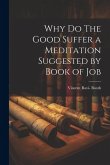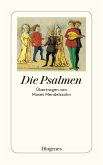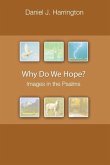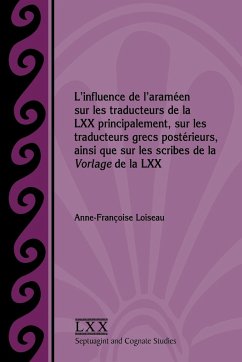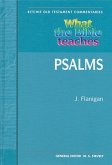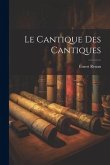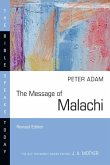23,99 €
inkl. MwSt.
Erscheint vorauss. 31. März 2025

12 °P sammeln
- Broschiertes Buch
- Merkliste
- Auf die Merkliste
- Bewerten Bewerten
- Teilen
- Produkt teilen
- Produkterinnerung
- Produkterinnerung
Demonstrating how the Old Testament or Hebrew Bible represents the first, and one of the most elaborate, projects of 'peoplehood,' Wright tells the dramatic story of the Bible's origins in relation to 1) a longstanding political division between North and South (Israel and Judah) and 2) the traumatic experience of defeat.
Andere Kunden interessierten sich auch für
![Why Do The Good Suffer a Meditation Suggested by Book of Job Why Do The Good Suffer a Meditation Suggested by Book of Job]() Vincent Ravi BoothWhy Do The Good Suffer a Meditation Suggested by Book of Job18,99 €
Vincent Ravi BoothWhy Do The Good Suffer a Meditation Suggested by Book of Job18,99 €![Die Psalmen - Übertragen von Moses Mendelsohn Die Psalmen - Übertragen von Moses Mendelsohn]() Die Psalmen - Übertragen von Moses Mendelsohn12,00 €
Die Psalmen - Übertragen von Moses Mendelsohn12,00 €![Why Do We Hope? Why Do We Hope?]() Daniel J HarringtonWhy Do We Hope?22,99 €
Daniel J HarringtonWhy Do We Hope?22,99 €![L'influence de l'araméen sur les traducteurs de la LXX principalement, sur les traducteurs grecs postérieurs, ainsi que sur les scribes de la Vorlage de la LXX L'influence de l'araméen sur les traducteurs de la LXX principalement, sur les traducteurs grecs postérieurs, ainsi que sur les scribes de la Vorlage de la LXX]() Anne-Françoise LoiseauL'influence de l'araméen sur les traducteurs de la LXX principalement, sur les traducteurs grecs postérieurs, ainsi que sur les scribes de la Vorlage de la LXX40,99 €
Anne-Françoise LoiseauL'influence de l'araméen sur les traducteurs de la LXX principalement, sur les traducteurs grecs postérieurs, ainsi que sur les scribes de la Vorlage de la LXX40,99 €![What the Bible Teaches - Psalms What the Bible Teaches - Psalms]() Jim FlaniganWhat the Bible Teaches - Psalms29,99 €
Jim FlaniganWhat the Bible Teaches - Psalms29,99 €![Le Cantique des Cantiques Le Cantique des Cantiques]() Ernest RenanLe Cantique des Cantiques23,99 €
Ernest RenanLe Cantique des Cantiques23,99 €![The Message of Malachi The Message of Malachi]() Peter AdamThe Message of Malachi19,99 €
Peter AdamThe Message of Malachi19,99 €-
-
-
Demonstrating how the Old Testament or Hebrew Bible represents the first, and one of the most elaborate, projects of 'peoplehood,' Wright tells the dramatic story of the Bible's origins in relation to 1) a longstanding political division between North and South (Israel and Judah) and 2) the traumatic experience of defeat.
Hinweis: Dieser Artikel kann nur an eine deutsche Lieferadresse ausgeliefert werden.
Hinweis: Dieser Artikel kann nur an eine deutsche Lieferadresse ausgeliefert werden.
Produktdetails
- Produktdetails
- Verlag: Cambridge University Pr.
- Seitenzahl: 482
- Erscheinungstermin: 31. März 2025
- Englisch
- ISBN-13: 9781108796682
- ISBN-10: 1108796680
- Artikelnr.: 72003733
- Herstellerkennzeichnung
- Libri GmbH
- Europaallee 1
- 36244 Bad Hersfeld
- gpsr@libri.de
- Verlag: Cambridge University Pr.
- Seitenzahl: 482
- Erscheinungstermin: 31. März 2025
- Englisch
- ISBN-13: 9781108796682
- ISBN-10: 1108796680
- Artikelnr.: 72003733
- Herstellerkennzeichnung
- Libri GmbH
- Europaallee 1
- 36244 Bad Hersfeld
- gpsr@libri.de
Jacob L. Wright is Associate Professor of Hebrew Bible at the Candler School of Theology, Emory University. His first book, Rebuilding Identity: The Nehemiah Memoir and its Earliest Readers (de Gruyter, 2004), won the 2008 Templeton prize for a first book in the field of religion. He is also the author of David, King of Israel, and Caleb in Biblical Memory (Cambridge University Press, 2014), which won The Nancy Lapp Popular Book Award from the American Schools of Oriental Research, and most recently, War, Memory, and National Identity in the Hebrew Bible (Cambridge University Press, 2020).
I. The Rise and Fall: 1. Abraham and Sarah: From One to the Many
2. Miriam: Empire and Exodus
3. Deborah: A New Dawn
4. David: Between North and South
5. Ahab and Jezebel: Putting Israel on the Map
6. Jehu and Elisha: Israel's Downfall and Judah's Jubilation
7. Hezekiah and Isaiah: Putting Judah on the Map
8. Josiah and Huldah: Judah's Downfall and Deportation
II. Admitting Defeat: 9. Daughter Zion: Finding One's Voice
10. The Creator: Comforting the Afflicted
11. Haggai the Prophet: Laying the Foundation
12. Nehemiah the Builder: Restoring Judean Pride
13. Ezra the Educator: Becoming a People of the Book
14. Hoshayahu the Soldier: Peoplehood as a Pedagogical Project
III. A New Narrative: 15. Jeremiah and Baruch: A Monument to Defeat
16. Isaac and Rebekah: The Family Story
17. Moses and Joshua: The People's History
18. Hannah and Samuel: The Palace History
19. Solomon and the Queen of Sheba: The National Narrative
20. Jonah: The Prophets as Survival Literature
21. Yhwh's People: Codes, Covenant, and Kinship
IV. A People of Protest: 22. Matriarch: Women and the Biblical Agenda
23. The Hero: Redefining Gender Roles
24. The Other: Tales of War, Outsiders, and Allegiance
25. The Soldier: Sacrificial Death and Eternal Life
26. Prophet and Priest: Open Access and Separation of Powers
27. The Sage: Job, Proverbs, and Ecclesiastes
28. The Poet: The Song of Songs and Psalms
29. The Queen: Peoplehood without Piety.
2. Miriam: Empire and Exodus
3. Deborah: A New Dawn
4. David: Between North and South
5. Ahab and Jezebel: Putting Israel on the Map
6. Jehu and Elisha: Israel's Downfall and Judah's Jubilation
7. Hezekiah and Isaiah: Putting Judah on the Map
8. Josiah and Huldah: Judah's Downfall and Deportation
II. Admitting Defeat: 9. Daughter Zion: Finding One's Voice
10. The Creator: Comforting the Afflicted
11. Haggai the Prophet: Laying the Foundation
12. Nehemiah the Builder: Restoring Judean Pride
13. Ezra the Educator: Becoming a People of the Book
14. Hoshayahu the Soldier: Peoplehood as a Pedagogical Project
III. A New Narrative: 15. Jeremiah and Baruch: A Monument to Defeat
16. Isaac and Rebekah: The Family Story
17. Moses and Joshua: The People's History
18. Hannah and Samuel: The Palace History
19. Solomon and the Queen of Sheba: The National Narrative
20. Jonah: The Prophets as Survival Literature
21. Yhwh's People: Codes, Covenant, and Kinship
IV. A People of Protest: 22. Matriarch: Women and the Biblical Agenda
23. The Hero: Redefining Gender Roles
24. The Other: Tales of War, Outsiders, and Allegiance
25. The Soldier: Sacrificial Death and Eternal Life
26. Prophet and Priest: Open Access and Separation of Powers
27. The Sage: Job, Proverbs, and Ecclesiastes
28. The Poet: The Song of Songs and Psalms
29. The Queen: Peoplehood without Piety.
I. The Rise and Fall: 1. Abraham and Sarah: From One to the Many
2. Miriam: Empire and Exodus
3. Deborah: A New Dawn
4. David: Between North and South
5. Ahab and Jezebel: Putting Israel on the Map
6. Jehu and Elisha: Israel's Downfall and Judah's Jubilation
7. Hezekiah and Isaiah: Putting Judah on the Map
8. Josiah and Huldah: Judah's Downfall and Deportation
II. Admitting Defeat: 9. Daughter Zion: Finding One's Voice
10. The Creator: Comforting the Afflicted
11. Haggai the Prophet: Laying the Foundation
12. Nehemiah the Builder: Restoring Judean Pride
13. Ezra the Educator: Becoming a People of the Book
14. Hoshayahu the Soldier: Peoplehood as a Pedagogical Project
III. A New Narrative: 15. Jeremiah and Baruch: A Monument to Defeat
16. Isaac and Rebekah: The Family Story
17. Moses and Joshua: The People's History
18. Hannah and Samuel: The Palace History
19. Solomon and the Queen of Sheba: The National Narrative
20. Jonah: The Prophets as Survival Literature
21. Yhwh's People: Codes, Covenant, and Kinship
IV. A People of Protest: 22. Matriarch: Women and the Biblical Agenda
23. The Hero: Redefining Gender Roles
24. The Other: Tales of War, Outsiders, and Allegiance
25. The Soldier: Sacrificial Death and Eternal Life
26. Prophet and Priest: Open Access and Separation of Powers
27. The Sage: Job, Proverbs, and Ecclesiastes
28. The Poet: The Song of Songs and Psalms
29. The Queen: Peoplehood without Piety.
2. Miriam: Empire and Exodus
3. Deborah: A New Dawn
4. David: Between North and South
5. Ahab and Jezebel: Putting Israel on the Map
6. Jehu and Elisha: Israel's Downfall and Judah's Jubilation
7. Hezekiah and Isaiah: Putting Judah on the Map
8. Josiah and Huldah: Judah's Downfall and Deportation
II. Admitting Defeat: 9. Daughter Zion: Finding One's Voice
10. The Creator: Comforting the Afflicted
11. Haggai the Prophet: Laying the Foundation
12. Nehemiah the Builder: Restoring Judean Pride
13. Ezra the Educator: Becoming a People of the Book
14. Hoshayahu the Soldier: Peoplehood as a Pedagogical Project
III. A New Narrative: 15. Jeremiah and Baruch: A Monument to Defeat
16. Isaac and Rebekah: The Family Story
17. Moses and Joshua: The People's History
18. Hannah and Samuel: The Palace History
19. Solomon and the Queen of Sheba: The National Narrative
20. Jonah: The Prophets as Survival Literature
21. Yhwh's People: Codes, Covenant, and Kinship
IV. A People of Protest: 22. Matriarch: Women and the Biblical Agenda
23. The Hero: Redefining Gender Roles
24. The Other: Tales of War, Outsiders, and Allegiance
25. The Soldier: Sacrificial Death and Eternal Life
26. Prophet and Priest: Open Access and Separation of Powers
27. The Sage: Job, Proverbs, and Ecclesiastes
28. The Poet: The Song of Songs and Psalms
29. The Queen: Peoplehood without Piety.

